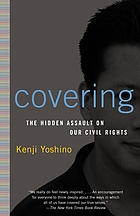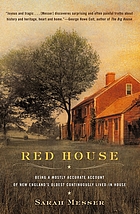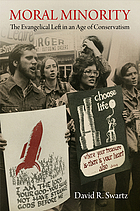Life has been busy for me since June and I haven't made much progress on my reading goals for the year. GoodReads is now yelling at me about how I'm ten books (more than a month!) behind schedule. But despite that, I have actually been reading (and writing). So here are a few brief notes to that effect.
For this edition of subject/verdict, I'll review in reverse chronological order (most recent read book first). Just for kicks.
Yoshino, Kenji. Covering: The Hidden Assault on American Civil Rights (Random House, 2006). Part memoir, part legal treatise, Covering explores the nuances of discrimination through the demand that non-normative people "mute" the aspects of themselves deemed socially unacceptable -- and the willingness of our court system to give such discrimination (for example employers demanding women wear make-up or firing a woman for "flaunting" her lesbian relationship) a pass. I read this book for the first time in 2006 and it holds up incredibly well seven years later.
Jordan, Mark D. The Ethics of Sex (New dimensions in religious ethics; Blackwell, 2002). A thoughtful historian of Christianity and sexuality, Jordan explores how Christians have spoken about sexual ethics from the earliest days of the church to the present day. The takeaway from this slim little tome is the diversity and historical specificity of Christian teachings on sexuality (that and the fact that masturbation was once considered the gravest form of incest).
Japinga, Lynn. Loyalty and Loss: The Reformed Church in America, 1945-1994 (Historical series of the Reformed Church in America; W.B. Eerdman's, 2013). Denominational historian (and a former professor turned friend) Lynn Japinga traces out the tensions within and trajectory of the RCA from the postwar era through the turbulent Sixties and Seventies, into the 1990s. Since this was an era that involved much debate over the ordination of women as well as the denominational stance on homosexuality, I obviously found much of interest.
Christiansen, Erik. Channeling the Past: Politicizing History in Postwar America (Studies in American thought and culture; Univ. of Wisconsin Press, 2013). Through a series of case studies, including the History Book Club, television shows Cavalcade of America and You are There, the Freedom Train traveling exhibition, and the Smithsonian Museum of American History re-design, Christiansen explores the way Americans in the 1950s produced and consumed narratives of their past. This is a thoroughly researched and entertaining account of a particular era of American popular history that I highly recommend to fellow history nerds.
Root, Elihu. Insuring the City: The Prudential Center and the Postwar Urban Landscape (Yale Univ. Press, 2012). I've been trying to read up on twentieth-century Boston history this year, and Root's fascinating account of the politics surrounding what is now an iconic Boston landmark -- the Prudential Center -- was a swift and pleasurable read. I particularly enjoyed the many photographs included that visually document how the neighborhood where I work every day has changed so dramatically in the past seventy years.
Evans, Sara M., editor. Journeys That Opened Up the World: Women, Student Christian Movements, and Social Justice, 1955-1975 (Rutgers Univ. Press, 2003). A book I picked up for my new research project on motive magazine, this is an anthology of personal essays by women who came to social justice activism through the mid-century student Christian movements on college and university campuses. I really appreciate the way this book centers the experience of women and explores how their faith inspired them to engage in progressive social change work and also made that work materially accessible by offering educational and vocational opportunities to aspiring women leaders.
Spirn, Anne Whiston. The Granite Garden: Urban Nature and Human Design (Basic Books, 1984). This was a $1 cart find that meshed well with my self-assigned goal of learning more about Boston and urban history/politics/culture. While it feels a bit dated in some of its examples, I actually found myself feeling slightly nostalgic for a period of time when environmental activism was treated with more serious urgency and hope for meaningful change than it generally is today.
Fine, Michelle and Lois Weis. The Unknown City: Lives of Poor and Working Class Young Adults (Beacon Press, 1998). Based on extensive qualitative interviews with working-poor young adults from Generation X, sociologissts Fine and Weis use their informants voices to explore the gritty realities of gender, race, and poverty in America's eroding working class economy. One of the most striking observations they make is their white male interviewees resistance to systemic analysis (they preferred to blame women and people of color for their economic woes) -- a demographic trend that we have made little headway on in the fifteen years since publication.
Messer, Sarah. Red House: Being a Mostly-Accurate Account of New England's Oldest Continuously Lived-in House (Viking, 2004). An historically-minded memoir, what at my college would have been termed "creative nonfiction," Messer's memoir tells the story of a house on Cape Cod her father and mother purchased and obsessed over -- and which became a family member in its own right, despite the lingering sense that the Messers were wrongful inhabitants, having purchased the property away from the descendants of the 17th-century man who first constructed the home. I particularly enjoyed the personal perspective Messer provides on the mid-20th century's revived interest in historic properties and public history.
Katz, Jonathan Ned. The Invention of Heterosexuality (Plume, 1996). Historian of gay and lesbian life, Katz turns his thoughtful eye on a sexuality we all assume is known but in fact is very rarely studied, or even defined: heterosexuality. Katz was one of the first scholars to point out that the "heterosexual" individual is a fairly recent historical invention, and his mid-90s discussion of the subject is still relevant todBuay.
Swartz, David R. Moral Minority: The Evangelical Left in an Age of Conservatism (Politics and Culture in Modern America; University of Pennsylvania Press, 2012). First in what surely will be a long line of books to end up on my "If only this had come out before I finished my thesis...", Swartz's excellent study explores the lives and work of left-leaning Evangelicals during the mid-twentieth century and asks why their early agitation and political influence was ultimately overshadowed by the rise of the religious right. My only critique was its focus on male leadership and only passing discussions of feminism or sexuality -- but that just leaves work for the rest of us, right?
Bussel, Rachel Kramer. Best Sex Writing 2013: The State of Today's Sexual Culture (Cleis Press, 2013). Over the past half-dozen years, I've become a big fan of the Best Sex Writing series -- even more so than the myriad best erotica collections that come out every year: I like thoughtful sex journalism, which combines thinking (a turn on for me) with sex (also a turn on). What more could a sex nerd desire? Bonus third sentence: you can read my favorite piece from this year's anthology for free at The Rumpus!
This has been the third edition of subject/verdict. I hope you enjoyed it; I'm sure there will be more bookish things to come during the forth quarter of the year.





No comments:
Post a Comment